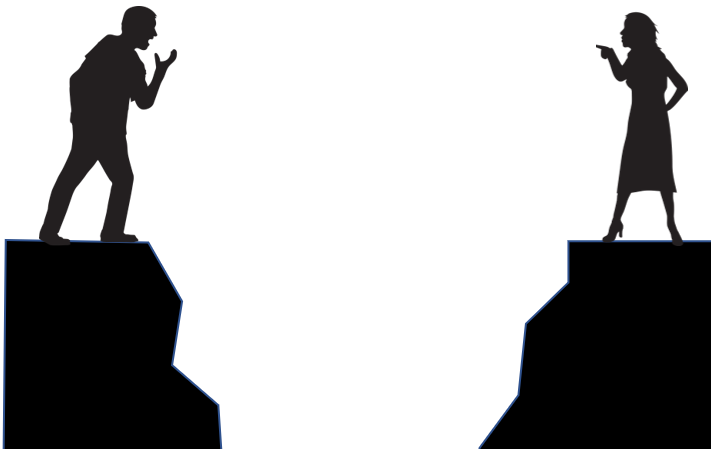“A house divided cannot stand.”
I pondered on those words when I read them from Lincoln’s famous campaign speech given over 160 years ago. For in Lincoln’s day, this quote refers to the nation, the United States of America, to have a unified policy on the abolition of slavery and not to have a division of states being pro-slavery or anti-slavery Lincoln’s audience would have been very familiar with this famous biblical quote where Jesus identifies the paradox of believing that evil will defeat evil “And if Satan has risen against himself and is divided, he cannot stand, but is coming to an end.” Lincoln surprisingly comments on the latter commentary when he states that “I do not expect the house to fall — but I do expect it will cease to be divided. It will become all one thing or all the other.”
However, compared to Lincoln’s time, today’s house, which is not just the nation, but even states, counties, cities, and families are divided by a myriad of issues. From love to philosophy and to even science, all of which have become politicized and are at risk of losing objective meaning. I felt chills when I read from an article from Scientific American, “The unprecedented high-profile endorsements of (insert your favorite political figure) from prestigious and academic journals signaled to rank-and-file scientists that political advocacy is no longer anathema to scientific research but should be embraced as a central aspect of science’s social mission.”1 When did science which I love in my heart became entrapped within this cesspool of politics when politics was the common death knell to unbiased science in history? Going further into this proverbial rabbit hole, I see these divisions among society becoming a wider and deeper chasm between two parties, in which even basic moral foundations are questioned, which are the fundamental glues that unite society.
What root is the cause of this? I’m afraid that most of the conflict is not by face to face with individuals, but by paper and ink, or rather mouse and keyboard, via social media. The internet is a place where people can speak and express their opinions without the immediate consequence of their words, whether they are spoken out of passion and or ignorance. The virtual social highway is also a means at which through the algorithms made by the social media providers provide news, groups, and ideologies which the individual and the program co-program the individual themself to their image, or in other words, pride in one’s ideas, narcissistic in their opinions, and irritable to anyone who tries to correct their errors.
So how are we going to mend this chasm of depravity? How are we going to bring each other out of this deep darkness? How will we strive to overcome this impending New Dark Age? The first thing I would recommend is to follow this practical wisdom from people of old, “Though I have much to write to you, I would rather not use paper and ink. Instead, I hope to come to you and talk face to face, so that our joy may be complete.” Meeting with people face to face, despite the pandemic, is vitally important, whether online, or outside, or even at each other’s homes. One can recognize the tone, the mood, and the rhythm of the other’s opinion or statement, which builds a bridge of understanding nonexistent on the web. Building humility, since no one knows everything in the world, is also important. Because just listening and asking constructive questions of your peers is like a precious stone, which should be kept with diligence. Lastly, it’s best for one’s health to avoid making social media their world and universe since the real world and universe are beyond the digital realm
- Scientific American, 25 Nov. 2020, www.scientificamerican.com/article/scientists-are-becoming-more-politically-engaged/.

